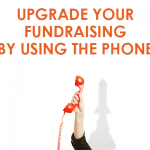Disaster Fundraising – How Your Nonprofit Should Respond
Disaster fundraising – when and how should your nonprofit respond?
And you need to respond carefully. Communications with donors need to be precise and convey the correct tone.
And this goes for all nonprofits.
Even if your organization is not directly involved in a disaster response.
How should YOUR nonprofit respond when natural disasters, wars, or crises strike?
If you are NOT engaged in a disaster response, do these three things:
1. Tell your donors how you are trying to help out.
If a disaster or an attack is on everyone’s minds, your donors will want to know that you are mobilizing somehow, some way.
They want to know how you are pitching in to help the situation.
2. Recommend some places for your donors to give.
Yes, I know it’s awkward.
But if your donors are concerned and even obsessed with the situation, it’s perfectly appropriate to recommend trusted nonprofits for contributions.
3. Delay soliciting your donors for your own cause.
I’d step back and wait a few weeks.
It would seem self-serving and even tone-deaf if you sent out a passionate appeal for your own work while your donors are concerned about other things.
Timing is everything.
But your communication needs to be very soon after the event.
If you wait a few weeks, it may seem awkward and ill-timed. The disasters will no longer be top of mind with your donors.
So you have the choice now of staying silent or showing up now – as helpful and concerned.
If you ARE engaged in responding to the disaster: Connect with your donors right NOW.
1. Share the facts immediately with your donors.
Your donors want to know exactly what is going on.
They want to know what your program people are seeing – out there in the disaster areas.
Give them specifics of people impacted, extent of damage, etc.
Help them feel the danger, the excitement, the turmoil of the real situation.
2. Give donors frequent updates from the field.
Your donors would be fascinated to hear on the ground reports – repeatedly.
We all worry about what to say to our donors, and how to contact them often. Well, here is a perfect opportunity.
You can make your donors feel like insiders.
Remember your donors love you and your work – so they want to know all this!
3. Be specific about what you are doing for the recovery effort.
Your donors want to know exactly what your organization is doing.
Are you cleaning up, serving meals, caring for lost animals, helping the homeless?
Be very specific about the numbers of people you are mobilizing, and how you are helping people.
4. Ask donors for generous gifts to fund specific initiatives if possible.
This is a terrific time to be asking. Donors really expect you to be asking at this point.
They want to know what you need, how much you need and what you need it for.
If you are not asking right now, your donors will be wondering why. Don’t hold back.
5. Call major donors personally.
By all means be in touch with your major donors. They love you.
They feel like they are in partnership with you. They want to help you.
And they expect you to be asking for what you need.
6. Stay accountable.
Never, ever, just take the money and run. Your donors deserve updates over time.
Be completely, completely transparent about how the money has been spent, or will be spent.
Here’s your chance to build trust, credibility and a closer relationship with your donors — or you can sow the seeds of mistrust and lose them forever.
Bottom Line: Disaster Fundraising –
Check out Roger Craver’s video that he made just for my Fired-Up Fundraising subscribers.
He was going to be my guest for our Wednesday Facebook Live broadcast this past Wednesday but, alas, we could not make the connection work.
Roger is THE EXPERT in Disaster Fundraising.
Heed his words, and do what he says.
Roger has decades of experience in direct mail and all things cause-related. Thank you Roger, for sharing your best advice with us!


